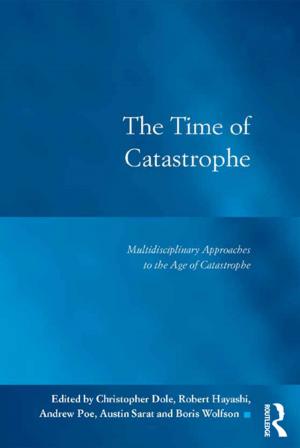The Function of Assessment Within Psychological Therapies
A Psychodynamic View
Nonfiction, Health & Well Being, Psychology, Mental Health| Author: | Luigi Caparrotta, Kamran Ghaffari | ISBN: | 9780429920851 |
| Publisher: | Taylor and Francis | Publication: | April 24, 2018 |
| Imprint: | Routledge | Language: | English |
| Author: | Luigi Caparrotta, Kamran Ghaffari |
| ISBN: | 9780429920851 |
| Publisher: | Taylor and Francis |
| Publication: | April 24, 2018 |
| Imprint: | Routledge |
| Language: | English |
There are various different psychological therapies but their shared aim is to help the sufferers of mental disorders. The role of assessment and the decisions following that are crucial in the treatment process. The first encounter between the patient and the assessor defines the problem and shapes the possible treatment model. However, formal training in assessment is non-existent. This volume attempts to offer guidelines for assessment and it also offers general information on assessment in a concise form, with the help of clinical vignettes and case examples. The purpose has been to keep the book as simple as possible so that it may be easily accessible to beginners as well as to provide an initial structure and overview for more experienced practitioners. We therefore hope that this work may serve as a useful guide for referrers, trainees and therapists practicing in a variety of psychotherapeutic settings, including those in the National Health Service and in private practice, and begin to foster further debate in this field.
There are various different psychological therapies but their shared aim is to help the sufferers of mental disorders. The role of assessment and the decisions following that are crucial in the treatment process. The first encounter between the patient and the assessor defines the problem and shapes the possible treatment model. However, formal training in assessment is non-existent. This volume attempts to offer guidelines for assessment and it also offers general information on assessment in a concise form, with the help of clinical vignettes and case examples. The purpose has been to keep the book as simple as possible so that it may be easily accessible to beginners as well as to provide an initial structure and overview for more experienced practitioners. We therefore hope that this work may serve as a useful guide for referrers, trainees and therapists practicing in a variety of psychotherapeutic settings, including those in the National Health Service and in private practice, and begin to foster further debate in this field.















